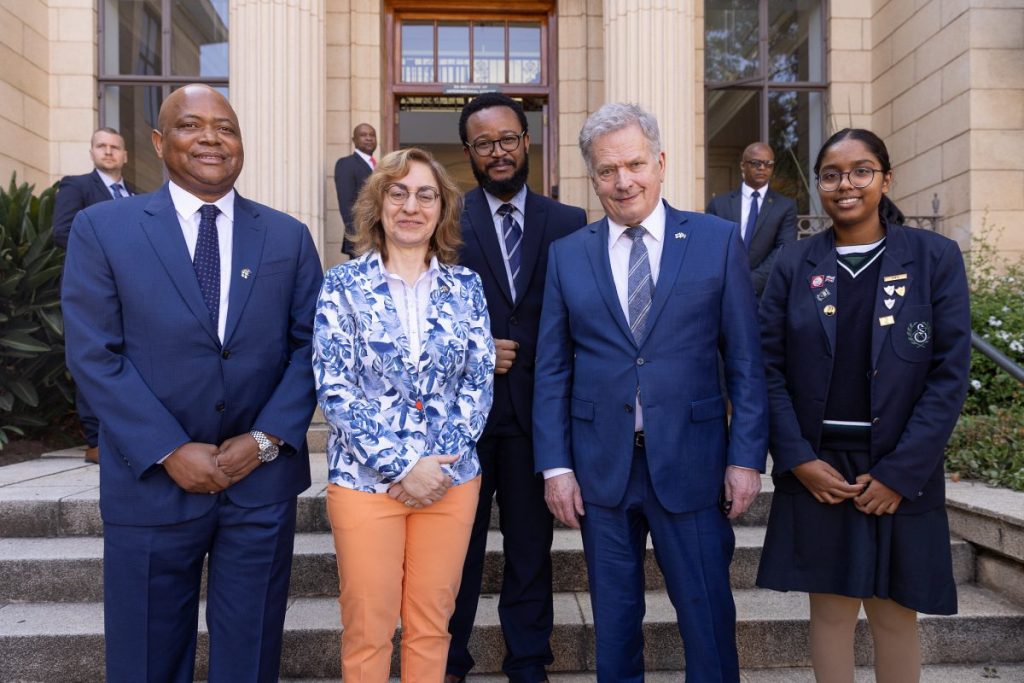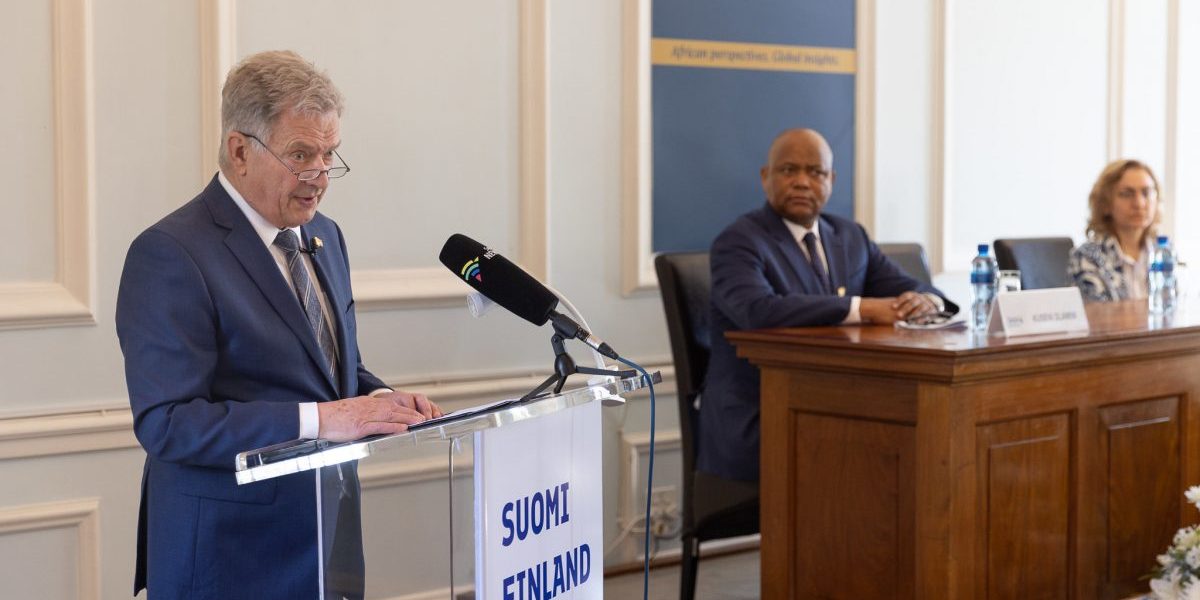Ladies and gentlemen, dear friends,
It is a delight for me to be in South Africa. My previous visit to Johannesburg took place ten years ago, under very different circumstances. Like thousands of others, I came to pay my respects to a truly great man, President Mandela.
Nelson Mandela’s spirit and life’s work brought people and nations together. What struck me at his funeral was a feeling of strong global unity. For a while, we forgot our differences and focused on what unites us.
Today, that feeling seems to be all but lost. The world is growing more and more divided. At a time when we are facing a complex set of global challenges – challenges that we can only overcome together – we seem to be drifting apart.
We live in an era of multiple and interlocking crises. The climate crisis and the loss of biodiversity. Food and energy crises. Impact of COVID-19 pandemic and health crisis. Inflation and cost of living crisis. They all interact and re-enforce each other. At the same time, wars and conflicts around the world continue to cause terrible human suffering, the situation in Sudan being the latest example. In Ukraine, Russia is waging a war that has increasingly global consequences.
Climate change is arguably the biggest test faced by the global community in our time. It requires us to revisit our very lifestyles: the way we produce, transport and consume. The IPCC’s latest assessment report contained a critical message: “There is a rapidly closing window of opportunity to secure a livable and sustainable future for all of us”. Rapidly closing window of opportunity. If this does not grab our attention, what does?

Climate change does not treat us fairly. Those least responsible for it are hit the hardest. In many African countries, climate change related events have devastating effects on communities, economies and ecosystems.
We cannot afford to postpone climate action – not in Europe, not in Africa. Nowhere. But we need to make sure that the transition is fair. This year, Finland will considerably increase international climate finance for developing countries. As an active member of the Champions Group on Adaptation Finance, we stress the importance of keeping the commitments made at COP26 in Glasgow.
There was a global food crisis even before Russia’s war on Ukraine. But the war further worsens that tragedy. Ukraine’s grain export has been severely impacted by the destruction of agricultural land and logistics infrastructure, as well as blocking of trade routes. The Black Sea Grain Initiative has offered a glimmer of hope. It is vital that it will be extended.
None of these crises can be solved by one country or continent alone. We need international cooperation, and Africa is playing a rapidly increasing role. It is a continent with some of the fastest growing economies of the world, whose population will by 2050 amount to more than a quarter of the total world population.
Africa’s geopolitical influence is also undeniable. Last year, the EU and the African Union renewed their partnership to build a common future, as close partners and neighbours. To save and strengthen effective multilateral cooperation with the UN at its core, we need African leadership.
Russia’s war in Ukraine has adverse global consequences. That is very evident. Who the aggressor is, is also very clear. With its actions, Russia is making a mockery of the UN Charter that requires member states to refrain from the “use of force against the territorial integrity or political independence of any state.”
Still, you and I may be looking at the war in Ukraine through a slightly different lens. Geographically, Ukraine is far away from Africa. But for Finland, it is in our neighbourhood. With Russia, many African countries have memories of close ties during the Soviet times. Finland’s experience is totally different.
For a hundred years, we lived under the Russian Empire. When the Empire crumbled, we declared independence and started building a democratic welfare state.

During the Second World War, as a young independent nation, we defended ourselves against a Soviet invasion. We fought hard and remained independent. But we paid a high price: many lives were shattered and territories were lost.
After the war, we managed to get along with Russia for decades. But when Russia attacked Ukraine, our historic memory awoke. War leaves deep marks.
Throughout the good years, we had been investing in our security and defence. But Russia’s apparent attempt to bring back spheres of influence and subordinate its neighbours prompted us to take one more step in increasing our security: that is applying for NATO membership.
By joining NATO, Finland is not looking to strengthen any fault lines. A world divided into blocs is a world more dangerous for all of us. Our NATO membership is not targeted against anyone. Through the Alliance, we maximize our own security. At the same time, we will hold on to our values. Finland remains a stable and predictable Nordic country that seeks peaceful resolution of disputes.
Peace should also be the objective in Ukraine. We know from history that to build a lasting peace, we need justice. A just peace cannot be dictated by others. It must be one which Ukraine itself considers justified.
At the moment, there is no such peace in sight. But when the time comes, the international community must stand up to ensure that this peace is a lasting one.
From whatever corner of the world we are looking at the global situation, we see growing challenges. To untangle the knot of crises we are faced with, we need to come together.
Whether it is about climate and nature, or war and peace, we have a responsibility towards those who come after us. Have we managed to secure a livable and sustainable future for all? Have we upheld the rules and laws that govern the peaceful coexistence of countries and nations? The choices we make today are a reflection of the value we give to the wellbeing of younger generations.
With the youngest population in the world, Africa has tremendous potential. When we engage the youth and give them a seat at the table – both nationally and internationally – we gain fresh perspectives for the issues of today and invest in future leadership. I am optimistic that in the younger generations, there are again leaders in the making who have the ability to bring people together. Leaders, who will make us focus on what unites us.
So dear friends, thank you.








